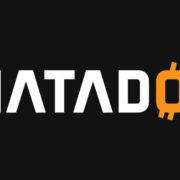US-based ETFs offering staking set for growth despite some regulatory, macro tailwinds

Upcoming exchange-traded funds (ETFs) that integrate staking yields stand to benefit significantly as US lawmakers and regulators clarify the legal status of on-chain rewards, according to a June 3 report.
The report noted points to two parallel policy moves. First, the US Securities and Exchange Commission (SEC) confirmed on May 29 that staking does not constitute a securities sale, provided customers keep ownership of their assets and receive risk disclosures.
This understanding applies to solo, delegated, or carried out through a custodial service staking.
Second, the bipartisan Digital Asset Market Clarity Act (CLARITY Act) would shift the oversight of most secondary market token trading to the Commodity Futures Trading Commission (CFTC) while leaving initial fundraising events under the jurisdiction of the SEC.
The CLARITY Act is also a recent move in the US crypto industry, filed on the same day as the SEC shared its statement on staking.
However, no ETF offering staking has received regulatory approval as of June 4.
Nansen argues that the twin actions remove a structural barrier for issuers planning products that wrap staking rewards inside an ETF chassis.
The note named BlackRock, Fidelity, and Bitwise as manufacturers preparing to capitalize on the change alongside significant staking assets such as Ethereum (ETH), Solana (SOL), and BNB, as well as liquid staking protocols like LIDO.
Yield-bearing structures
The report also mapped two macro paths tied to US-China trade talks that could add fuel to boost ETFs offering to stake.
Under the base case scenario, which assumes talks “muddle through” and the Senate softens a pending tax provision, Bitcoin (BTC) retests its record. At the same time, staked currencies receive an extra boost from regulatory momentum.
In the bearish scenario, a tariff re-escalation pressures equities first. Yet, the report still shared expectations that staked tokens and related ETFs would outpace stocks because their yield component would offset price weakness.
Data from DefiLlama reveals that ETH staking and liquid staking yields range between 2.5% and 3% on the largest platforms by total value locked (TVL). The average for SOL using the same data ranges from 6.5% to 8%, while Staking Rewards data highlight a 2.1% average yield for BNB.
Beyond the scenario matrix, the research cited a drop in the equity risk premium below 2.5% and subdued equity volatility as evidence that traditional markets may undercompensate investors for risk.
By contrast, staking-enabled ETFs combine crypto upside with a yield stream that does not rely on corporate earnings.
Nansen concluded that regulatory clarity, macro diversification, and investor appetite for blockchain yield create an opening for funds that pass staking rewards through to shareholders.














